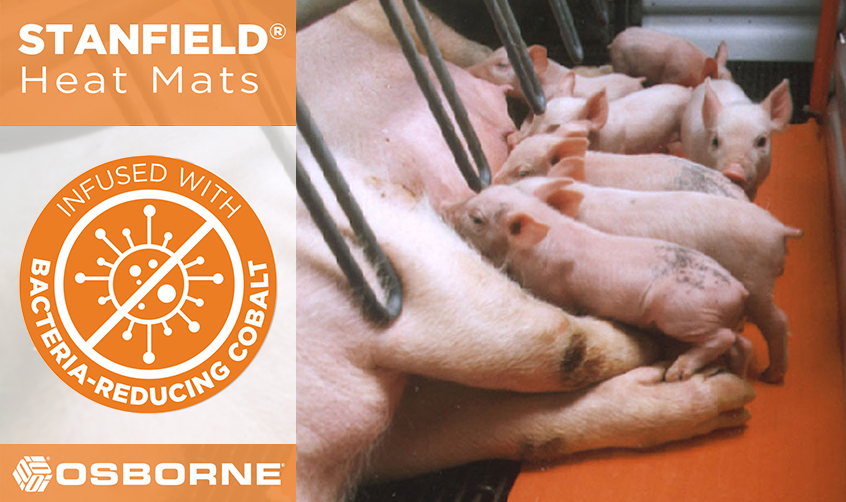



Animal welfare cast in bronze by Pork CRC
Animal welfare was the focus of Pork CRC’s bronze sponsorship of ‘Animal Production 2018’, the 32nd biennial conference of the Australian Society of Animal ProductionHeld over three days in July at Charles Sturt University, Wagga Wagga, New South Wales, its theme was ‘Fostering innovation through the value chain’.
Pork CRC Manager, Commercialisation and Research Impact, Charles Rikard-Bell, who attended and represented the Cooperative Research Centre for High Integrity Australian Pork, said the theme was a perfect fit, as Pork CRC’s four programs were all about innovation up and down the value chain.
This was particularly the case with Program One, ‘Reduced confinement of sows and piglets’, which focussed on developing innovative sow and piglet management and housing systems that progressively relied on less confinement to optimise sow and piglet welfare, while maintaining production efficiency and profitability.
Pork CRC Subprogram 1C leader, Professor Paul Hemsworth of University of Melbourne, delivered the Barnett Memorial Lecture at the first day’s final session ‘Consumer demands and welfare’, which was sponsored by Pork CRC.
The main conclusion from his lecture, titled ‘Key determinants of pig welfare: implications of animal management and housing design on livestock welfare’, was that group housing provided welfare advantages in most situations.
Prof Hemsworth said it was clear from Pork CRC research that appropriate housing design, good management and stockmanship were three key drivers of successful group housing.
Design factors covered by his lecture involved research in areas of floor spacing, feeding systems, time of mixing, restrictive feeding and environmental enrichment.
Prof Hemsworth referenced the Pork CRC supported PhD research of Megan Verdon on the feeding behaviour of floor-fed group housed sows.
Dr Verdon had shown that dominant sows spent most time feeding under droppers, while subdominant and submissive sows spent most time feeding in areas close to dominant sows, but with less feed availability and in areas of limited or no feed availability, respectively.
All sows could get enough feed to maintain pregnancy and gain some weight, but in doing so they received more aggression than dominant sows.
Dominant and submissive sows exhibited significantly higher cortisol levels than sub-dominants, suggesting it might be more stressful protecting areas of high feed supply and avoiding aggression altogether than adopting more opportunistic feeding behaviour.
These results had obvious implications for the design of floor feeding systems.
Interestingly, group size had no effect on aggression and stress levels.
Dr Rikard-Bell said that while Pork CRC research established the major factors affecting sow welfare at and after mixing, Program 1 also concentrated on enrichment for pregnant sows and defining and improving welfare in conventional systems at farrowing and lactation.
Addressing the conference at the conclusion of the session, Dr Rikard-Bell explained that Australasian Pork Research Institute Ltd (APRIL), the organisation that will build upon Pork CRC’s work following the completion of Pork CRC’s Commonwealth funding agreement on June 30, 2019, had completed its first call for 2018/19 and the APRIL Board had approved 14 R&D projects to commence this month.
“Animal welfare will continue to be an important area of research for APRIL as we assess the animal's affective state and APRIL anticipates supporting future Animal Production Conferences and presenting research outcomes,” he said.
As reported by Pork CRC









